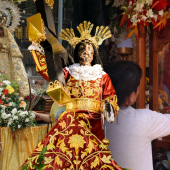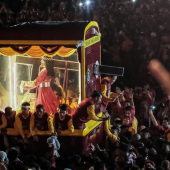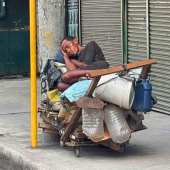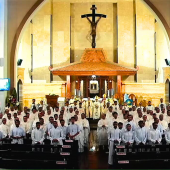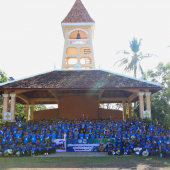Philippines: Officials of Quiapo Church call for Solemn, Safe and Orderly celebration
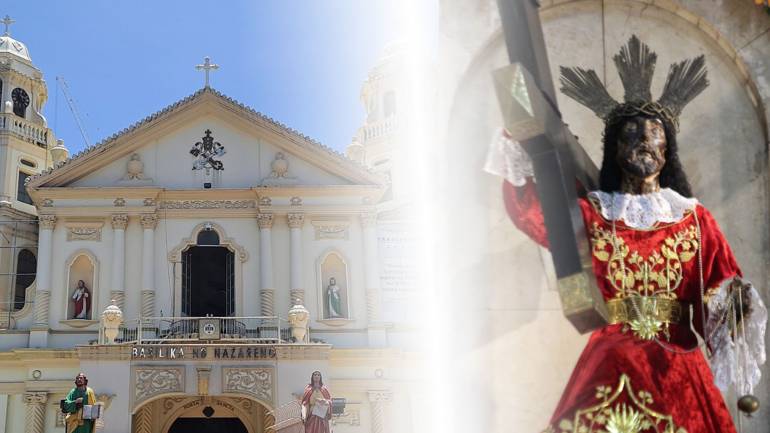
The Minor Basilica of the Black Nazarene, also known as Quiapo Church, called for a solemn, safe, and orderly celebration of the feast of Jesus the Black Nazarene that happens every 9th of January in Manila, Philippines.
According to the Operations Director of Nazareno 2024, Mr. Bong Grajo, everything was well prepared, and “the Minor Basilica of the Black Nazarene engaged in an extensive and in-depth formation program among devotees.”
He added that they also had interagency coordination and interoperability exercises with different organizations and government agencies involved.
The Manila City Government including the Philippine National Police, Military and medical personnel, is also geared up to maintain peace and order.
The most anticipated activity that is part of the celebration of the feast is the procession known as Traslacion. This reenacts the transfer of the image of Jesus the Black Nazarene, who was then in Intramuros, to St. John the Baptist Parish in Quiapo Church.
After three years of not being able to fully celebrate the occasion because of the restrictions brought about by the COVID-19 pandemic, the officials are expecting millions of devotees to come to the Traslacion and venerate the image of Jesus this year.
The celebration usually has three main venues: the Quirino Grandstand in Luneta, the Quiapo Church and the procession route.
The highlight of the celebration will start at Quirino Grandstand on January 8, where the kissing and venerating of the image of Jesus will happen. The Archbishop of Manila, Jose Cardinal Advincula, will lead the midnight Eucharistic celebration. After the mass, there will be a morning prayer before the procession or Traslacion starts.
According to statistics, in the years before the pandemic, this event gathered about 2 million individuals per passing hour, from the eve of the feast day up to the whole day of January 9.
This year, the routine that was usually carried out in the celebration, namely the Thanksgiving masses, the blessing of the images or replicas a few days before the feast, the procession, also called Traslacion, and "pacaridad,” or giving of food to the devotees, will be back as part of the celebration.
The biggest change that the officials emphasized is that the devotees will no longer be allowed to climb up the caroza, also called "andas,” of Jesus the Black Nazarene. In the years before the pandemic, numerous devotees usually climbed and touched the image of Jesus throughout the procession.
Volunteers called Hijos Del Nazarenos will guard the image of Jesus the Black Nazarene enclosed with glass in the caroza this year.
Father Rufino “Jun” Sescon, the Rector of the Minor Basilica of the Black Nazarene, calls to everyone—the devotees, police, media and all who will be attending the celebration—to help in making it solemn, safe and orderly.
"With this opportunity [after the pandemic], especially the Traslacion, everyone, including the church and government, tried to renew and restore the traditions... We are returning to the first expression of devotion; this is a reset for our Nazareno 2024, especially the Traslacion that will be held." - Leahna Villajos
Radio Veritas Asia (RVA), a media platform of the Catholic Church, aims to share Christ. RVA started in 1969 as a continental Catholic radio station to serve Asian countries in their respective local language, thus earning the tag “the Voice of Asian Christianity.” Responding to the emerging context, RVA embraced media platforms to connect with the global Asian audience via its 21 language websites and various social media platforms.









